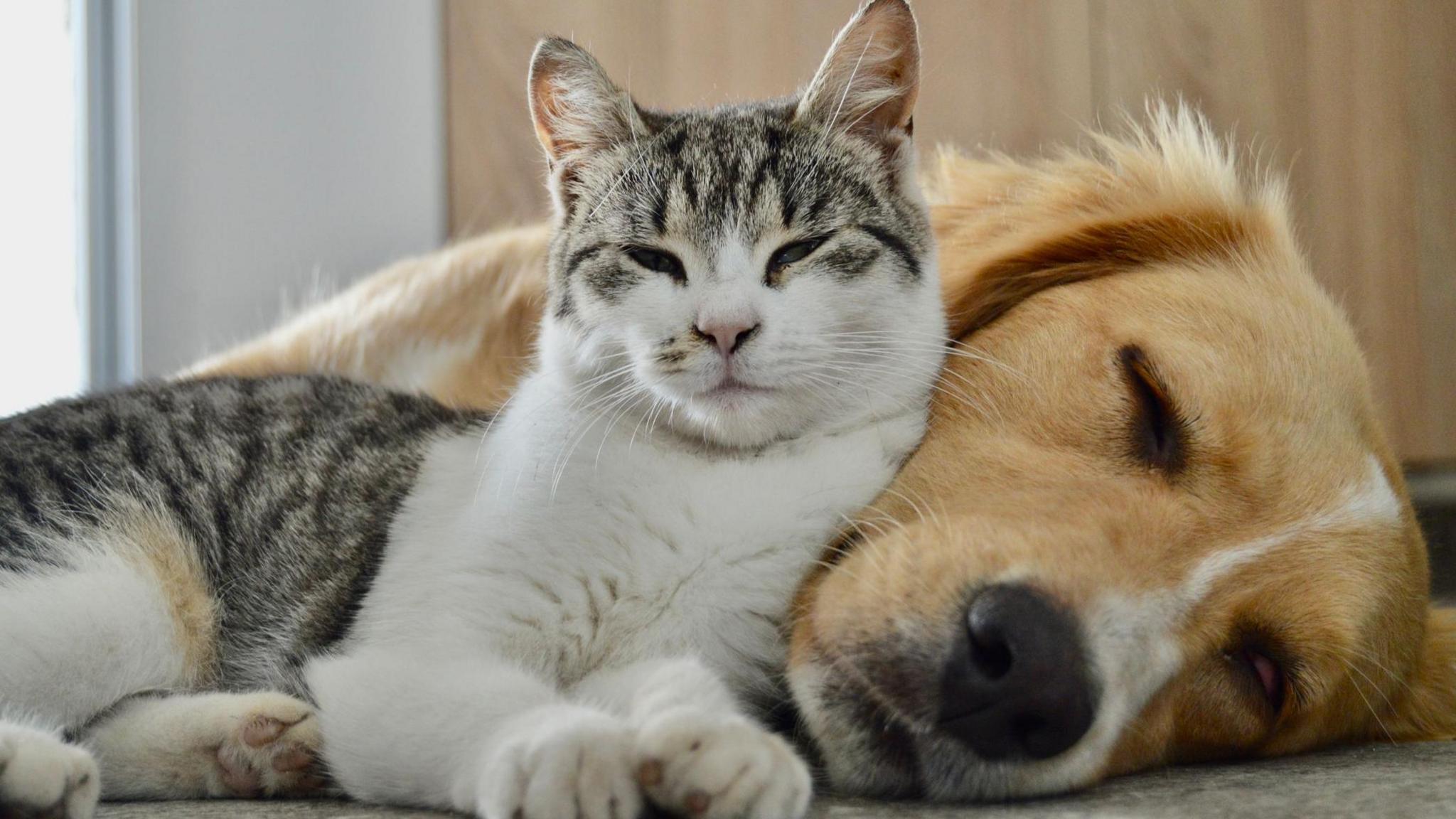How to look after dogs, cats and other pets in cold weather
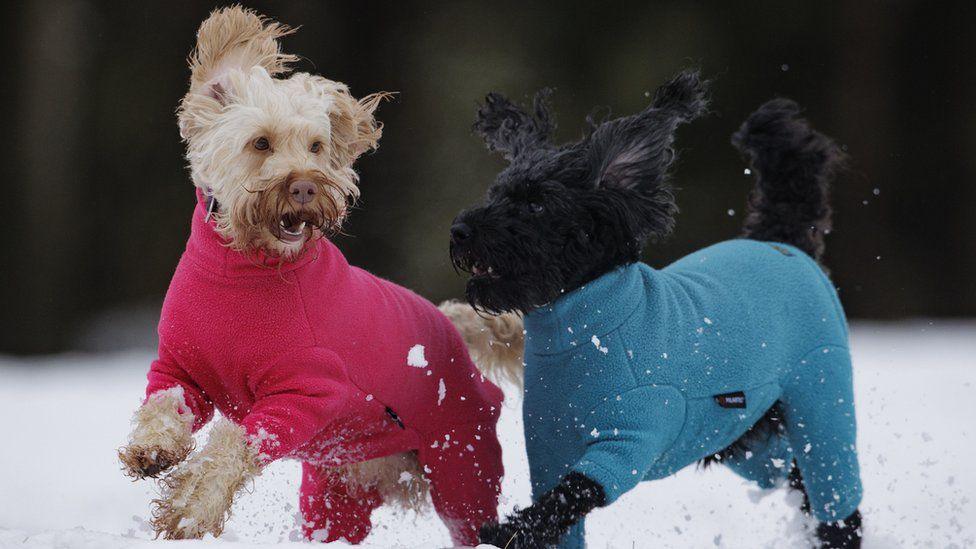
- Published
Met Office snow and ice warnings are in place for much of the country, as colder conditions are felt across the UK.
Pets can need help to stay warm and safe during wintry conditions.
How do I keep my pet warm indoors?
Like humans, animals can be at risk of hypothermia if they become too cold.
The RSPCA says pets can shiver when they are exposed to low temperatures for too long. This is more noticeable in smaller and short-haired breeds.
The PDSA veterinary charity advises giving dogs and cats extra blankets for their beds over the winter months and adding a few more spaces where they can curl up around the home.
Raising their beds off the ground can keep older dogs away from draughts, while cats may like playing or resting in high-up dens or on climbing posts.
Experts recommend extra playtime to make sure pets keep active if they are spending less time outside. Indoor toys can help.
Your pet may want to eat more to help keep their body temperature up.
At the same time, they may also want to drink less, but make sure they have constant access to fresh drinking water to avoid the risk of dehydration.
Should I still walk my dog during cold weather?
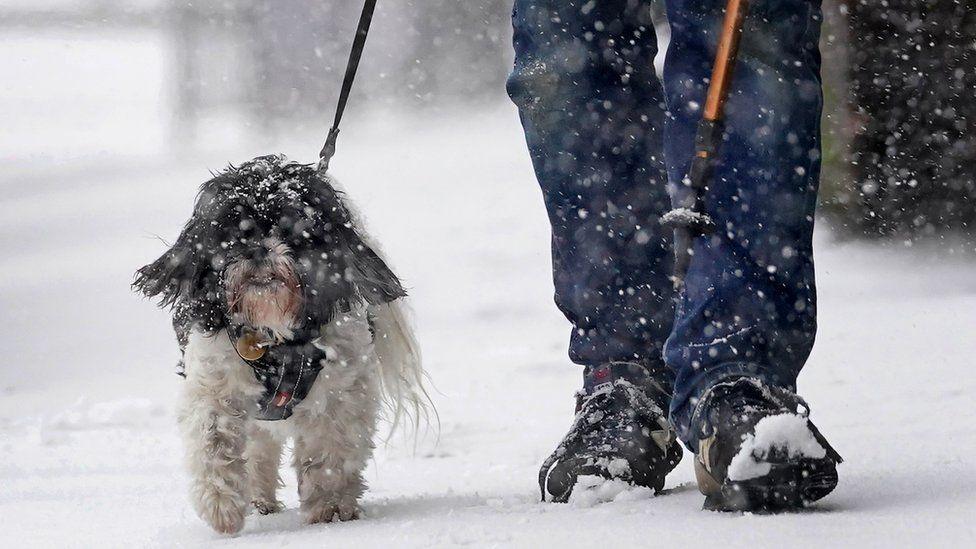
Dogs still need walks during cold weather.
Usually, their fur will keep them warm. But some dogs - particularly those with shorter fur - may need extra help staying warm while outside.
"For most dogs, their own lovely fur coat is insulation enough, but those with thin fur, or who are unwell, very old or young, may benefit from a good winter coat," according to PDSA's Gemma Renwick.
"Look for something well-fitting, waterproof but with a comfy lining."
Walk your dog during the day if you can, or if you have to go out in the dark, consider using LED collars or hi-vis leads to ensure they can be seen.
Be cautious when letting dogs off the lead in the snow, and supervise them closely as hazards may be hidden. Similarly, keep pets away from frozen water as the ice on ponds and lakes can be thin and may not support their weight.
As the temperatures drop, plan for shorter, more frequent walks rather than one long-distance daily hike and if your dog gets wet, make sure you dry them off with a towel as soon as you get home.
Any build-up of salt, grit, dirt or snow can be painful, so owners should check and rinse their pet's paws.
How to keep warm when budgets are squeezed
- Published3 January
How to drive in snow and icy weather
- Published14 hours ago
How do cold weather health alerts work?
- Published15 hours ago
How to keep babies warm in cold weather and other winter tips
- Published7 January
What about rabbits and guinea pigs during cold weather?
Smaller pets such as rabbits, guinea pigs and ferrets can also feel the cold.
The PDSA says a sudden drop in temperatures can be a shock to the system for the animals, and recommends moving them inside if they live in outdoor hutches.
A shed or car-free garage can offer a good amount of protection from draughts, rain or snow.
If you have to bring your animals inside, try and put them in a room which you can keep a bit cooler than the rest of your home. Turn down the radiators if you can.
If there is no inside option, the charity advises placing a thick blanket or piece of carpet over their outside living quarters to help keep them warm.
Should I keep my cat inside?
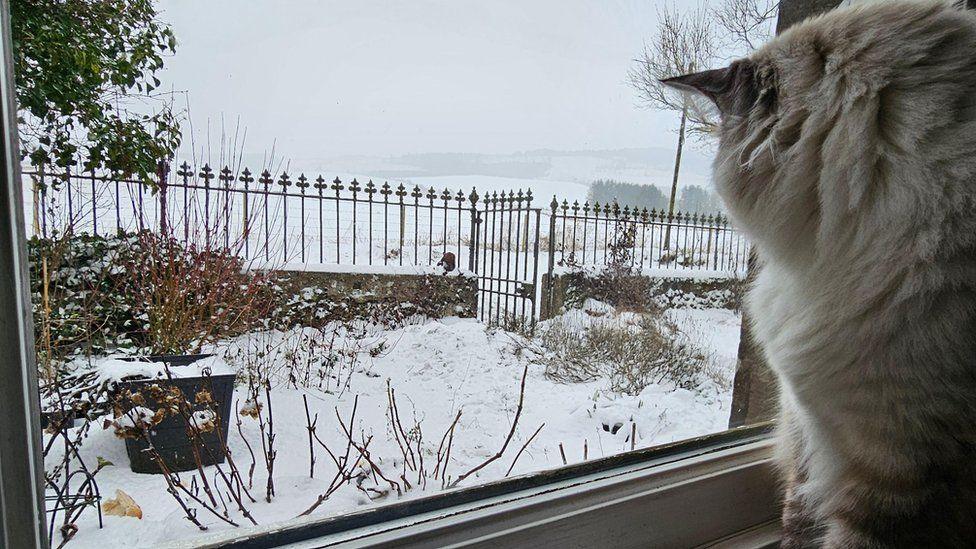
Many cats spend a lot of their time exploring the outdoors.
During the day, experts say cats who are used to going outside should continue to do so.
But the PDSA advises making sure can easily get back inside through a cat flap whenever they want, or have a warm outside shelter where they can go.
Ideally cast should stay inside overnight during periods of very cold weather.
The charity also recommends providing litter trays inside, even if your cat usually goes outside so they have a warm toileting option.
How should I care for chickens in the winter months?
Chickens and hens are incredibly resilient and should typically cope well with a bit of cold weather, the British Hen Welfare Trust, external says.
However, during extreme conditions, the charity recommends:
making sure your birds have a robust shelter, and that any hen houses are insulated
for larger hen houses, putting a cardboard box on its side for your hens to sleep in
checking their water supply regularly to ensure it hasn't frozen
checking boundaries regularly to ensure they are safe from predators. Fence posts may become loose in wet weather, giving foxes or badgers east access to the animals
Related topics
- Published12 August
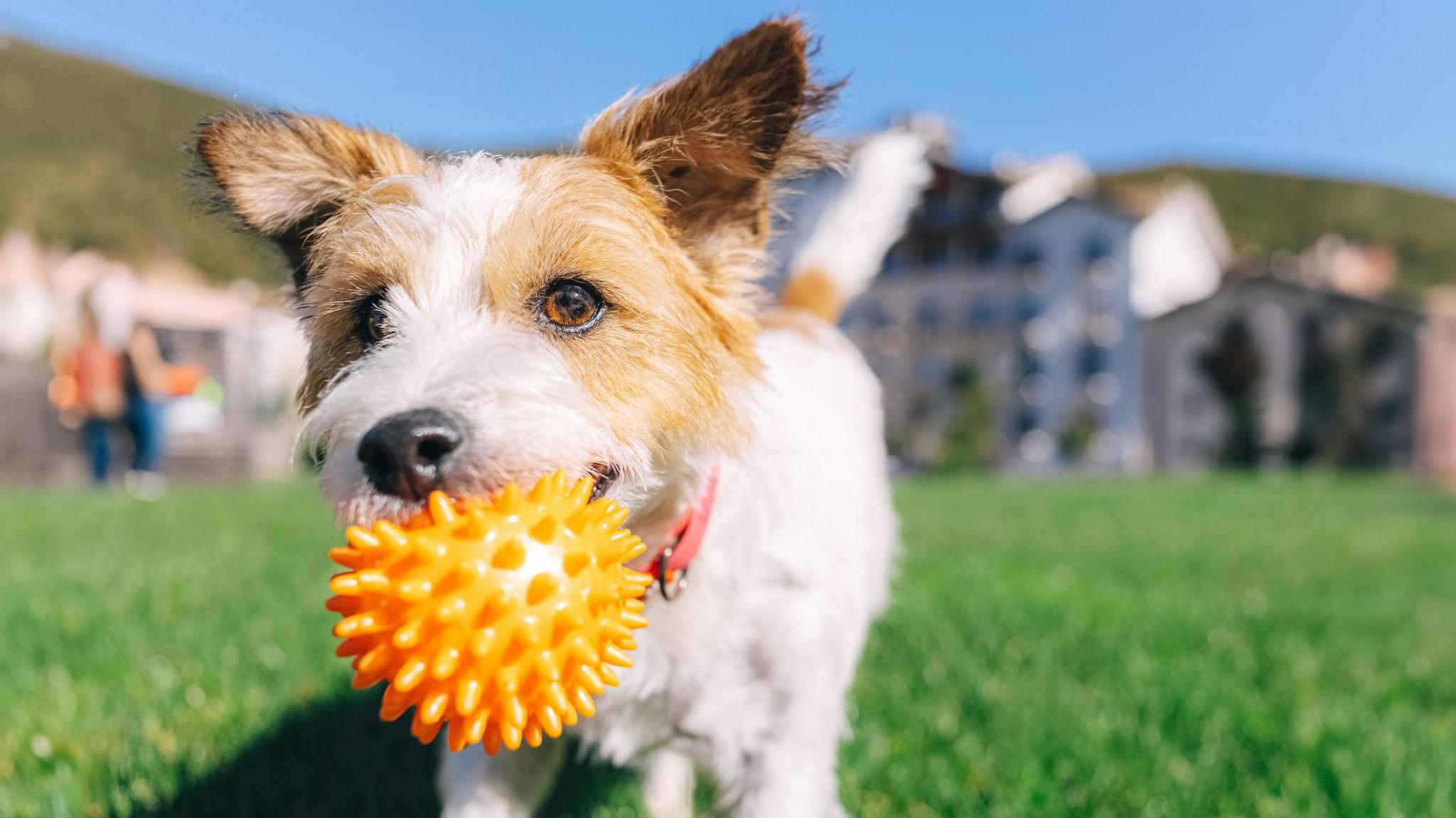
- Published15 October

- Published29 July
